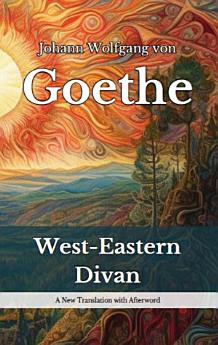West-Eastern Divan
About this ebook
Hegel, Lectures on Aesthetics
Published in 1819 by Cotta in Stuttgart and Tübingen, West-Eastern Divan (West-östlicher Divan) is Goethe’s late poetic cycle inspired by his engagement with classical Persian literature, particularly the 14th-century lyric poetry of Hafez as translated by Joseph von Hammer-Purgstall. Written during a period of renewed literary experimentation and cultural reflection, the work comprises a series of poems grouped into twelve books, each with distinct motifs, voices, and themes, accompanied by prose commentary. Goethe’s title signals a meeting between Western and Eastern traditions, not as a fusion, but as a structured dialogue, in which poetry, ethics, love, and politics are refracted through contrasting historical and cultural lenses.
Sparked by profound engagement with the poetry of the 14th-century Persian master Hafez and the cultural ferment following the Napoleonic era, Goethe crafted this extraordinary collection, blending Eastern poetic forms and motifs with Western thought to forge a visionary dialogue across centuries and continents; it stands as a pioneering monument to literary world citizenship. Published in 1819, though expanded later, the Divan gathers lyrical poems grouped into thematic ‘books’ exploring love, faith, politics, and the poet’s craft, interwoven with Goethe’s own illuminating ‘Notes and Essays’ dissecting Persian history, poetry, and the project’s intercultural ambitions with scholarly passion. Moving beyond mere exotic imitation, Goethe internalized the spirit of Hafez and Sufi mysticism, using the ghazal form and Eastern imagery as vehicles for his own mature reflections on existence, transience, and the unity underlying apparent diversity, resulting in a work whose intellectual breadth and lyrical experimentation opened unprecedented pathways for European engagement with the Orient.
This critical reader's edition offers a modern translation of the original Fraktur manuscript (the old German script) to help curious readers delve into Goethe's works. It uses clear, contemporary language and straightforward sentences to illuminate his complex ideas. The edition includes supplementary material that provides autobiographical, historical, and linguistic context for this eighteenth-century work. This material includes an afterword by the translator that discusses Goethe’s history, impact, and intellectual legacy, as well as an index of the philosophical concepts he explored, with a focus on Romanticism and Classicism. Also included are a comprehensive chronological list of his published writings and a detailed timeline of his life, highlighting the personal relationships that profoundly influenced his philosophy.











